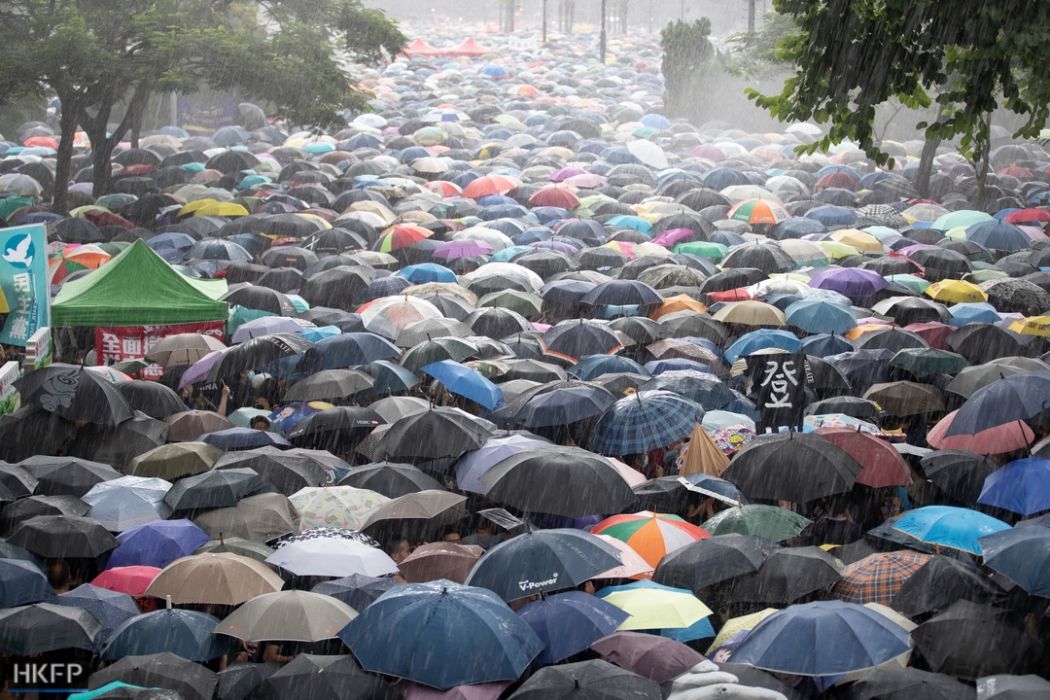Chief Executive John Lee has told a reporter that the pro-democracy demonstrations and unrest of 2019 should be referred to as the “black violence,” not “protests.”

Lee was responding to a question about how post-protest Hong Kong is set to see local elections with a proportion of democratically-elected seats lower than in colonial times.
“First of all, it is not the 2019 protests. It is the black violence. It is the attempt to make Hong Kong independent and [an] attempt to cause disaster to Hong Kong society as a whole that we need to prevent,” Lee said. “I think that has been made very clear. We lived through that, and don’t forget it. We have to bear that in mind so as to ensure that in the long run, the system will protect us from all this chaotic and harmful situation to arise again.”
Protests erupted in June 2019 over a since-axed extradition bill. They escalated into sometimes violent displays of dissent against police behaviour, amid calls for democracy and anger over Beijing’s encroachment. Demonstrators demanded an independent probe into police conduct, amnesty for those arrested and a halt to the characterisation of protests as “riots.”
Although small factions of the “leaderless” protests called for independence, it was not a demand of the movement.
Frontline demonstrators hurled fire bombs as police fired tear gas, but there were also large-scale, peaceful marches attended by millions opposed to the extradition bill. “As a free, open and pluralistic society, we acknowledge and respect that people have different views on a wide range of issues,” a government statement on June 9, 2019 said.

On June 16, 2019, the administration apologised to Hongkongers over the handling of the legislation, with then-chief executive Carrie Lam offering a “sincere, solemn” personal apology two days later. In the months that followed, as the unrest escalated, the government took aim at “rioters,” overseas politicians, and the spread of “false and biased information.”
Over 10,200 arrests were made in connection with the movement.
Support HKFP | Policies & Ethics | Error/typo? | Contact Us | Newsletter | Transparency & Annual Report | Apps
Help safeguard press freedom & keep HKFP free for all readers by supporting our team

LATEST FROM HKFP
HKFP has an impartial stance, transparent funding, and balanced coverage guided by an Ethics Code and Corrections Policy.
Support press freedom & help us surpass 1,000 monthly Patrons: 100% independent, governed by an ethics code & not-for-profit.










